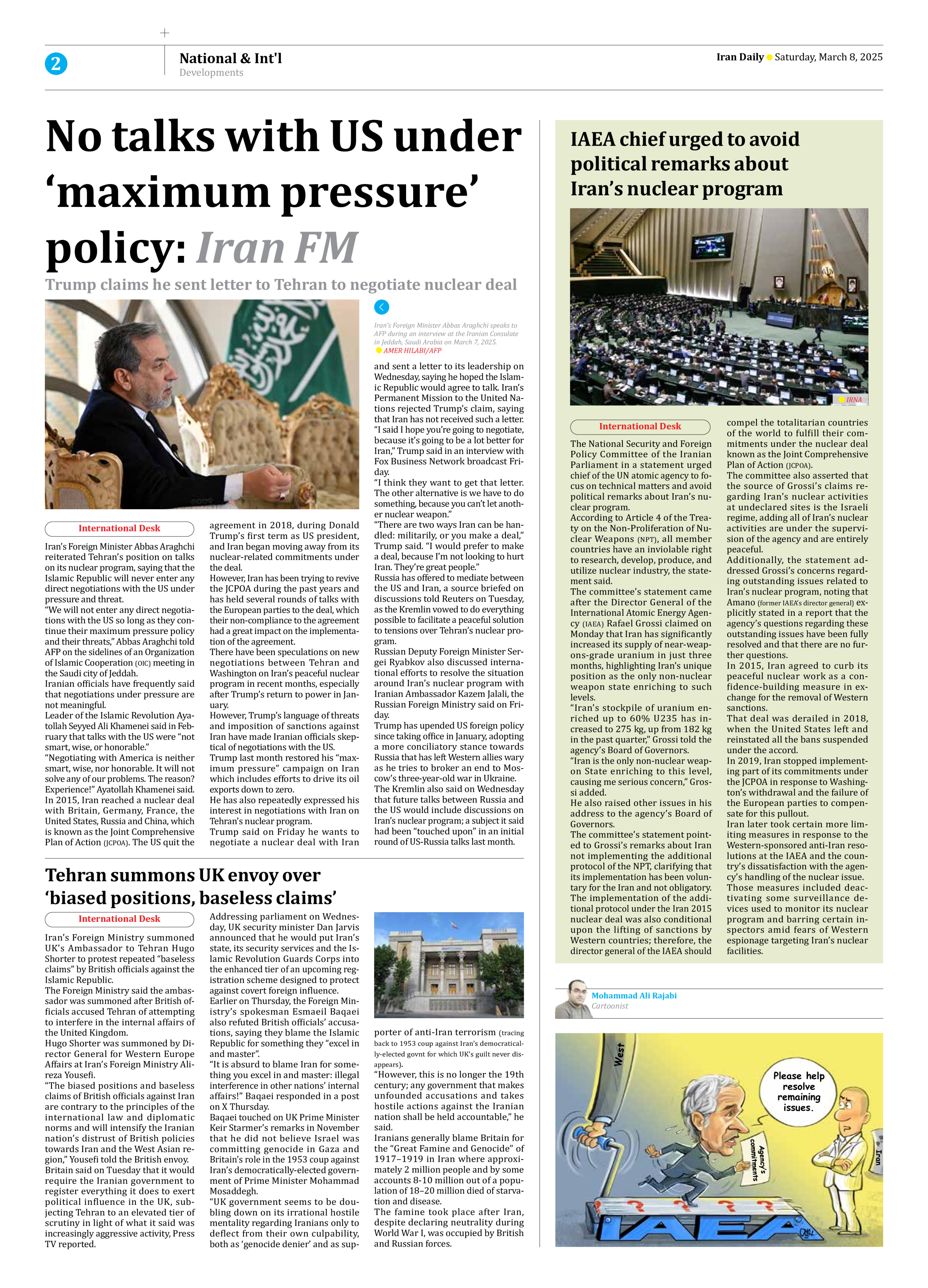
IAEA chief urged to avoid political remarks about Iran’s nuclear program
The National Security and Foreign Policy Committee of the Iranian Parliament in a statement urged chief of the UN atomic agency to focus on technical matters and avoid political remarks about Iran’s nuclear program.
According to Article 4 of the Treaty on the Non-Proliferation of Nuclear Weapons (NPT), all member countries have an inviolable right to research, develop, produce, and utilize nuclear industry, the statement said.
The committee’s statement came after the Director General of the International Atomic Energy Agency (IAEA) Rafael Grossi claimed on Monday that Iran has significantly increased its supply of near-weapons-grade uranium in just three months, highlighting Iran’s unique position as the only non-nuclear weapon state enriching to such levels.
“Iran’s stockpile of uranium enriched up to 60% U235 has increased to 275 kg, up from 182 kg in the past quarter,” Grossi told the agency’s Board of Governors.
“Iran is the only non-nuclear weapon State enriching to this level, causing me serious concern,” Grossi added.
He also raised other issues in his address to the agency’s Board of Governors.
The committee’s statement pointed to Grossi’s remarks about Iran not implementing the additional protocol of the NPT, clarifying that its implementation has been voluntary for the Iran and not obligatory.
The implementation of the additional protocol under the Iran 2015 nuclear deal was also conditional upon the lifting of sanctions by Western countries; therefore, the director general of the IAEA should compel the totalitarian countries of the world to fulfill their commitments under the nuclear deal known as the Joint Comprehensive Plan of Action (JCPOA).
The committee also asserted that the source of Grossi’s claims regarding Iran’s nuclear activities at undeclared sites is the Israeli regime, adding all of Iran’s nuclear activities are under the supervision of the agency and are entirely peaceful.
Additionally, the statement addressed Grossi’s concerns regarding outstanding issues related to Iran’s nuclear program, noting that Amano (former IAEA’s director general) explicitly stated in a report that the agency’s questions regarding these outstanding issues have been fully resolved and that there are no further questions.
In 2015, Iran agreed to curb its peaceful nuclear work as a confidence-building measure in exchange for the removal of Western sanctions.
That deal was derailed in 2018, when the United States left and reinstated all the bans suspended under the accord.
In 2019, Iran stopped implementing part of its commitments under the JCPOA in response to Washington’s withdrawal and the failure of the European parties to compensate for this pullout.
Iran later took certain more limiting measures in response to the Western-sponsored anti-Iran resolutions at the IAEA and the country’s dissatisfaction with the agency’s handling of the nuclear issue.
Those measures included deactivating some surveillance devices used to monitor its nuclear program and barring certain inspectors amid fears of Western espionage targeting Iran’s nuclear facilities.







